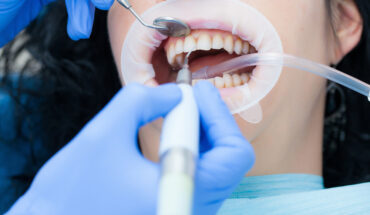
Taking your child for a dental visit is essential for their oral hygiene. On most occasions, you may have to take your child for a dental visit more than five times before they get to kindergarten. As your child’s teeth grow and fall out, more dental visits become necessary. For the child, a dental visit is usually scary; the white-coated staff, having to lie down and a stranger starts poking cold instruments into their mouth and the pain associated with removing a tooth.
There are things you can do to empower your child to overcome dental fear. If you want to ease your child’s future dental visits, here are some best practices.
- Start young-take your child to the dentist from a very young age as soon as their first tooth shows up.
- Keep a positive conversation when discussing your child’s dental visit, and do not give false hope to avoid losing their trust. For instance, tell the child the dentist would like to count their teeth and check if they are clean.
- Do not tell them stories about negative dental experiences such as tooth extractions, root canals, etc.
- Emphasize the importance of oral hygiene and that visiting a dentist is necessary, not a choice. Explain that the dentist keeps cavities at bay and helps them get the best smile.
- Stay calm and leave all the work to the dentist. The dentist and his/her team are used to working with children and have experienced their share of tantrums. Sydney children are pampered by the dental fraternity to make the dental visit less scary.
Children’s dentistry focuses on a wide range of kid’s oral health. These days, dentists pamper kids during visits to reduce the fear associated with dental checkups. Some pediatric dental clinics have kid-friendly offices, such as delightful wall pictures and video games to distract the kid during the dental checkup. That is why children fear dentists less nowadays. But, how about adults?
Do adults also fear dentists?
The truth is, dental fear and anxiety in adults still exist. People with dental fear dread dental visits so strongly that they avoid it altogether, which can have detrimental effects on their oral health. Dental anxiety can result from a past traumatic experience with a dentist, witnessing a negative portrayal of dentistry, or trust issues. A patient can reduce their dental fear by finding the proper dentist they can trust. If the person feels a sense of relaxation when they meet the chosen dentists, they gradually overcome their dental fear. In addition to working with a dentist they can trust, adults like a clinic located in a leafy and convenient location.
There are several techniques dentists use to deal with dental fear in adults, including behavioral techniques and medication use. The dentist explains the dental procedures in a gentle and relaxing way to help the patient overcome their fear of the unknown. Behavioral techniques such as relaxation methods, e.g., deep breathing and commending the patient after a successful dental procedure, are helpful. The use of medication varies from mild sedation to general anesthesia or laughing gas to soothe a nervous patient.
Concluding thoughts
Dentists should adopt practices such as being empathic and gentle to alleviate the fear and anxiety associated with dental visits.




